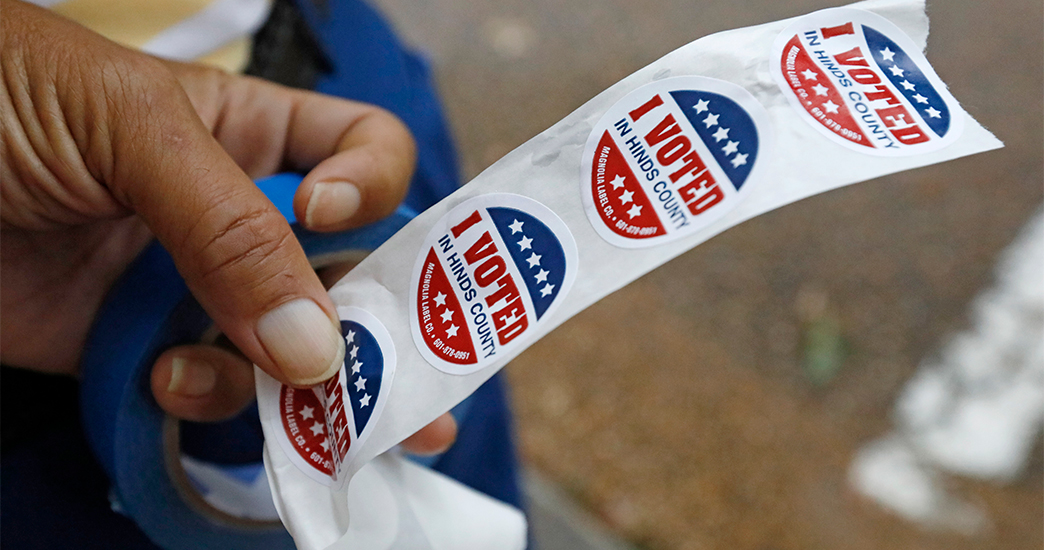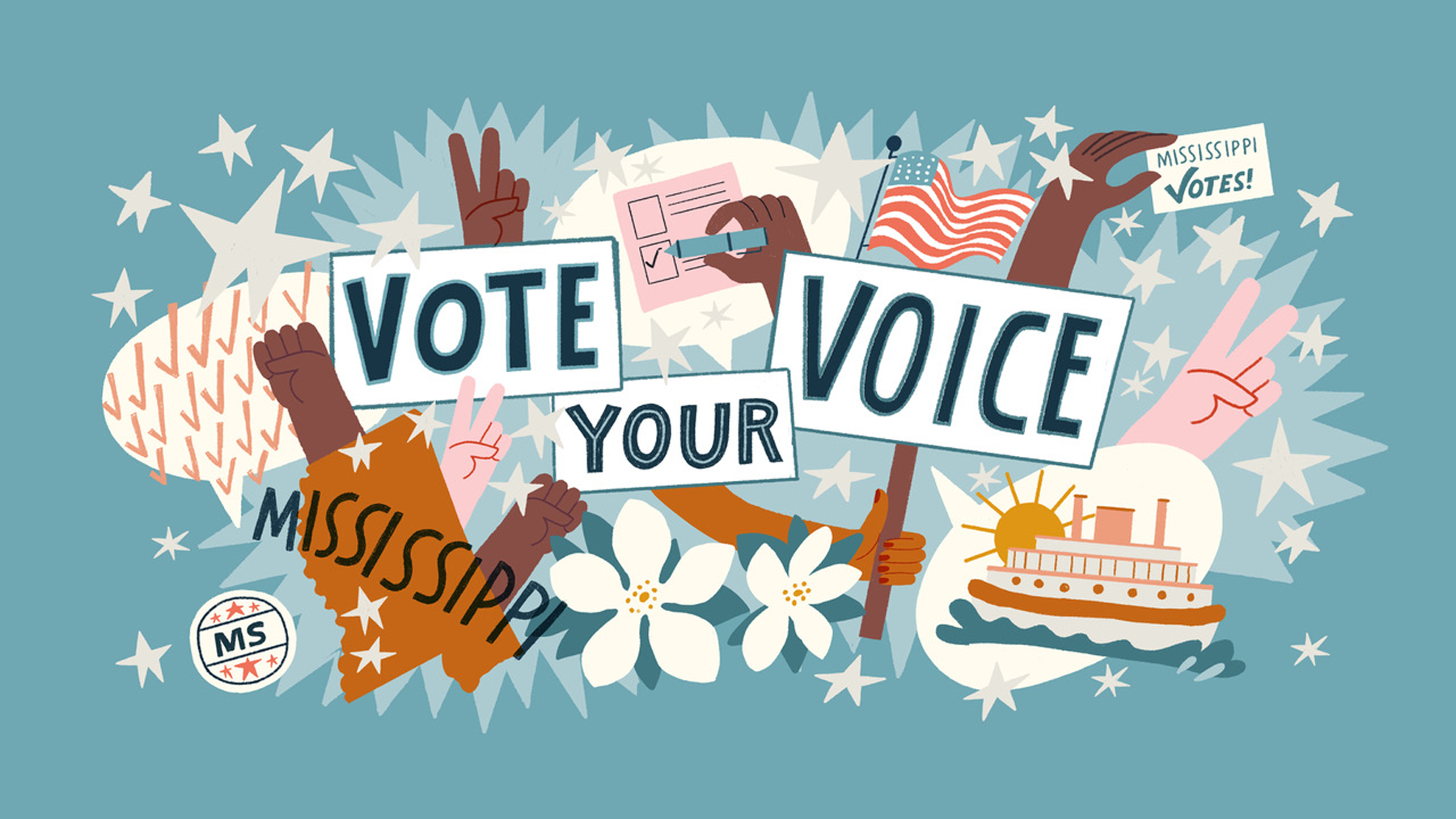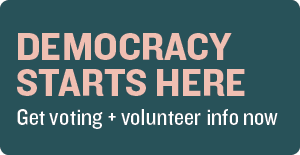Cynthia Parham wants to vote by absentee ballot. A survivor of five heart bypass surgeries, the 61-year-old insurance agent in Oxford, Mississippi, also has diabetes and kidney disease. With the coronavirus a deadly threat to her, she has rarely left her home since March.
But she votes in a state with an election system still rooted in 19th century laws created to keep power out of the hands of Black people.
Under current Mississippi law, high-risk voters like Parham – and their caregivers and loved ones – can’t vote absentee without an excuse or a doctor’s order. They can’t avoid lines and crowds by voting early, because there is no early voting. They can’t request an absentee ballot online because Mississippi doesn’t offer that simple option.
They must line up to vote in person – and take the risk.
Parham is far from alone. With the nation approaching a general election, she is among millions of voters making their way through a maze of laws that, in many places, force medically vulnerable people to risk their health to vote and working people to risk their jobs to vote, and that make it so difficult for people in jail, prison and with felony convictions to vote that even where they have the right to do so, most don’t even know they can.
In a push to help voters overcome these hurdles, the Southern Poverty Law Center is investing up to $30 million from its endowment in nonpartisan, nonprofit voter outreach over several election cycles. The SPLC is empowering grant recipients to increase voter participation among people of color like Parham.
In addition to Mississippi, the new Vote Your Voice initiative – a partnership with the Community Foundation for Greater Atlanta – supports voter registration, education and mobilization in Alabama, Louisiana, Georgia and Florida.
The campaign seeks to empower communities of color by aiding them in their fight against voter suppression; support Black- and Brown-led voter outreach organizations often ignored by traditional funders; support and prototype effective voter engagement strategies; and re-enfranchise and register people with felony convictions.
The grantees – currently 40 in total – are encouraging millions of voters across the South to exercise their fundamental right to vote and ensure that they are able to elect, and hold accountable, candidates who represent their values.
A total of $10 million has been distributed in the first two rounds of grants: $1,205,000 in Mississippi; $2,460,000 in Georgia; $2,910,000 million in Florida; $505,000 in Alabama; $1,210,000 in Louisiana; $500,000 for a project focused on Alabama and Georgia; and $1,210,000 for multistate projects.
“What’s at stake here is whether individuals have the opportunity to feel like they are an active part of democracy,” said John Paul Taylor, who as voting rights restoration field director for SPLC has spent the past two years encouraging people from marginalized communities in Mississippi and beyond to register and vote. “What’s at stake is whether individuals have an opportunity to use their power to elect officials who are going to affect their everyday lives – and then to break the cycle of feeling like second-class citizens.”
Voter suppression, in one form or another, has been baked into Mississippi’s election system since the late 19th century.
The 15th Amendment, enacted during Reconstruction, barred states from an outright ban on Black voters. But, like other Deep South states, Mississippi in 1890 ratified a new constitution that enforced white supremacy and disenfranchised Black voters through measures that included a poll tax and literacy test. At the same time, a “grandfather clause” permitted registration of anyone whose grandfather was qualified to vote before the Civil War – effectively exempting most white men from the literacy test (women were still not allowed to vote).
The 24th Amendment eliminated poll taxes for federal elections in 1962, when Mississippi was one of five states that still had one. Finally, the U.S. Supreme Court outlawed poll taxes for all elections four years later.
More than half a century later, voter suppression is alive and well, though usually more subtle. A felony disenfranchisement law passed in 1890 remains in place to this day.

Currently, Black people make up about 38 percent of Mississippi’s population, more than any other state. In the legislature, 31 percent of the members are Black, but since Reconstruction, Mississippi has not elected a single Black statewide officeholder. The state has no early voting or online voter registration – both proven means to increase citizen voter access.
With no state election board, elections can be fragmented and haphazard. Individual county clerks make their own rules. And under election rules codified in the 1890 constitution, to win statewide office, candidates must garner both a majority of the statewide vote and win in a majority of the 122 state House districts. Only 42 of those districts are majority Black. Otherwise, the state House of Representatives, dominated by white lawmakers, selects the winner.
Into that landscape, the SPLC moved almost two years ago to support change in Mississippi and throughout the Deep South.
With a small staff of lawyers and advocates in Atlanta, SPLC’s new voting rights team joined the organization’s established staff in Jackson to amplify the work of organizations with longstanding ground operations fighting systemic injustice. This year it joined with other groups to sponsor an amendment on the November ballot that would end the two-tier election process for statewide office established during the Jim Crow era.
The SPLC has also taken action to restore voting rights for people with felony convictions and eligible electors who are in jail or prison. While hundreds of thousands of citizens convicted of certain classes of felonies are stripped of their voting rights in Mississippi, many other incarcerated citizens are legally permitted to vote but have no idea that is their right.
Unable to visit jails and prisons because of the pandemic, the SPLC has teamed with organizations with community roots to enlist families of people in prison to distribute 2,500 packets containing registration forms, absentee ballot applications and instructions on how to complete them to incarcerated citizens across the state. And they set up hotlines that people in prison can call.
With its Mississippi partners, the SPLC is also pushing for same-day voter registration, early balloting and easy access to absentee ballots.
“These groups that we are supporting through the grant process are the ones that have been on the ground, that have been doing the work for a really long time,” said Caren Short, senior staff attorney with the SPLC’s Voting Rights Practice Group. “Like these groups, we know that if people are locked out from voting and from choosing their representatives, then the power structure that exists is really going to stay the same. So we are giving them money and resources, and we are working alongside them.”
The SPLC has gone to court to support Parham and other voters with medical conditions who simply want to vote safely. Along with the Lawyers’ Committee for Civil Rights Under Law and Dechert LLP, it filed suit on Aug. 27 on behalf of Parham and two other Mississippi residents, the League of Women Voters of Mississippi and the Mississippi State Conference of the NAACP. The lawsuit challenged Mississippi’s restrictive and confusing absentee ballot rules.
As a result of the litigation, which was recently voluntarily dismissed by the plaintiffs, the state implemented a process by which absentee voters can correct signature match errors after Election Day and introduced expanded access to curbside voting.
At the same time, the SPLC and its partners are part of a much broader fight.
“This didn’t start yesterday,” Taylor said. “They’ve been operating like this for a hundred years or more in places. And they did it for a reason. You have to know that, just like you’re fighting to change, there are people who are fighting against it. It’s an ongoing battle. And the only thing to do is to be on the right side.”
Here is a closer look at the grant recipients in Mississippi and how they are using the funding.
Boat People SOS – Grant amount: $60,000
Along the Gulf Coast of Mississippi, a Vietnamese community that emerged from the humanitarian crisis following the Vietnam War has long been given voice by Boat People SOS. The group has come to the aid of Vietnamese fishermen who ply their trade in the waters of the Gulf and other disenfranchised Asians navigating hurricanes, oil spills and poverty.
Now the Vote Your Voice grant is helping Boat People SOS register voters across the community of about 10,000 people through COVID-safe voter registration events, educational workshops and canvassing.
Starting last November, the group partnered with another local organization to run a phone bank to encourage voter registration. Volunteers drop voter information flyers printed in Vietnamese at local businesses. Churches are conducting small, socially distant services, and Boat People SOS makes announcements at the gatherings and in church newsletters. The Vote Your Voice grant is helping extend those efforts.
“For a long time, Vietnamese would not participate civically in the election process, but recently many have become naturalized citizens, and they are taking pride in voting,” said Daniel Le, Mississippi and Alabama branch manager. “They want to make sure that the country is moving in the right direction, and they want to have a voice in what the future of this country looks like.”
Fair Count Inc. – Grant amount: $300,000
When former Georgia gubernatorial candidate Stacey Abrams founded Fair Count last March, she sought to ensure that people of color, people who speak limited English, renters and others likely to be skipped in the U.S. Census were included. At the heart of the endeavor, its leaders say, is building civic participation.
With the Vote Your Voice grant, Fair Count’s operations in Mississippi and beyond are confronting the health crisis by distributing tens of thousands of face masks, along with voting instructions, in marginalized communities.
“We’re not operating outside the pandemic, because the communities we serve don’t have that option,” said CEO Rebecca DeHart.
Fair Count is also using the Vote Your Voice grant to call and text voters, marshal social media platforms and conduct virtual events focused on rural areas of Mississippi, as well as Florida, Georgia and Louisiana.
“Democracy is stronger when everyone has a seat at the table,” DeHart said. “When we focus on communities that have been left out of the story, or who have had their stories stolen from them, then we are actually able to achieve so much more.”
Mississippi Band of Choctaw Indians – Grant amount: $55,000
It has been a devastating year for the Mississippi Band of Choctaw Indians. The coronavirus has sickened hundreds of members of the state’s only federally recognized Indian tribe, and more than 60 tribal members have died. That has only strengthened the resolve of the Choctaw to vote.
With about 11,000 Tribal members in eight communities across 10 rural Mississippi counties, the Choctaw people are cohesive guardians of their heritage, proud to live on their historic Choctaw homeland and to vote regularly, Tribal Chief Cyrus Ben said.
“For decades, minority voices, which include the Choctaw people, have been suppressed,” Ben said.
Fueled in part by the Vote Your Voice grant, the Tribe has stepped up its efforts to lower barriers to voting. Through social media and peer-to-peer texting, it is encouraging young members to register to vote. It is canvassing and will provide transportation to the polls for elderly Tribal citizens, along with childcare to parents of young children so they can vote. And it is ensuring that Chahta language translators are on hand at each polling place on Tribal lands.
“We are indeed seeing progress,” Ben said.
Mississippi Votes – Grant amount: $200,000
Arekia Bennett was a physics and chemistry major at a Mississippi university when she tuned into local and regional politics. She realized that “something was not right.”
“As a young woman in the Deep South, I started to understand that there were so many issues I cared about, like control over my own body, that were intrinsically tied to the electoral process,” Bennett said. “For any particular issue, there was an elected official trying to control that part of my life.”
That realization spurred Bennett and other college students to found Mississippi Votes in 2016 to turn out young voters. Today, Bennett says the organization is active on 17 college campuses. It runs civics classes in high schools and summer youth institutes and has registered 15,000 voters since 2018.
With the Vote Your Voice grant, Mississippi Votes has conducted voter registration drives in 58 counties, amplified its digital organizing strategy and broadened its political education.
“We have been able to really spread our wings across the state,” Bennett said.
One Voice – Grant amount: $350,000
The waters of Hurricane Katrina had not yet receded in 2005 when a group of community leaders met in a historic building in downtown Jackson. More than a tempest was on their minds. With the NAACP on board, the leaders formed One Voice to lift the state’s historically disadvantaged communities.
“We started during a tumultuous time in our state’s history, and we continue to respond to these storms, ICE raids, prison crises, pandemics and other chaotic periods in our history,” said Executive Director Nsombri Lambright.
Boosted by the Vote Your Voice grant program, Lambright said, One Voice has provided 69 mini-grants to community groups to educate voters. The groups reach more than 40 of Mississippi’s 82 counties. Together, Lambright said, they have made more than 150,000 calls to unregistered and infrequent voters, implemented a voter protection hotline and marshalled hundreds of volunteers to help voters cast their ballots on Election Day.
“As our network grows,” Lambright said, “our capacity to shift the narrative in Mississippi does too.”
Southern Echo – Grant amount: $600,000
Founded three decades ago by veteran civil rights activist Hollis Watkins, Southern Echo is rooted in the belief that poverty and racism continue to undermine the power of Black, low-income and underserved communities throughout Mississippi and the Deep South. Central to addressing that injustice, its leaders say, is ensuring free and fair elections.
“In Mississippi, voting and elections still suffer under aggressive voter suppression tactics, including billboards giving incorrect Election Day information, voter roll purging, voter ID laws and gerrymandering,” said Executive Director Rachel Mayes.
With the funding from Vote Your Voice, Southern Echo is amplifying its efforts to increase voting rights. It is helping 15 grassroots organizations reach neglected communities; mass producing educational literature on why and how to vote; and mobilizing more than 500 volunteers to distribute that information and encourage voters to cast their ballots.
“Add this to the powerful surge of youth calling for change and marching to make their voice heard,” Mayes said. That “fills us with hope and an eagerness to work even harder.”
Illustration by Mary Kate McDevitt




